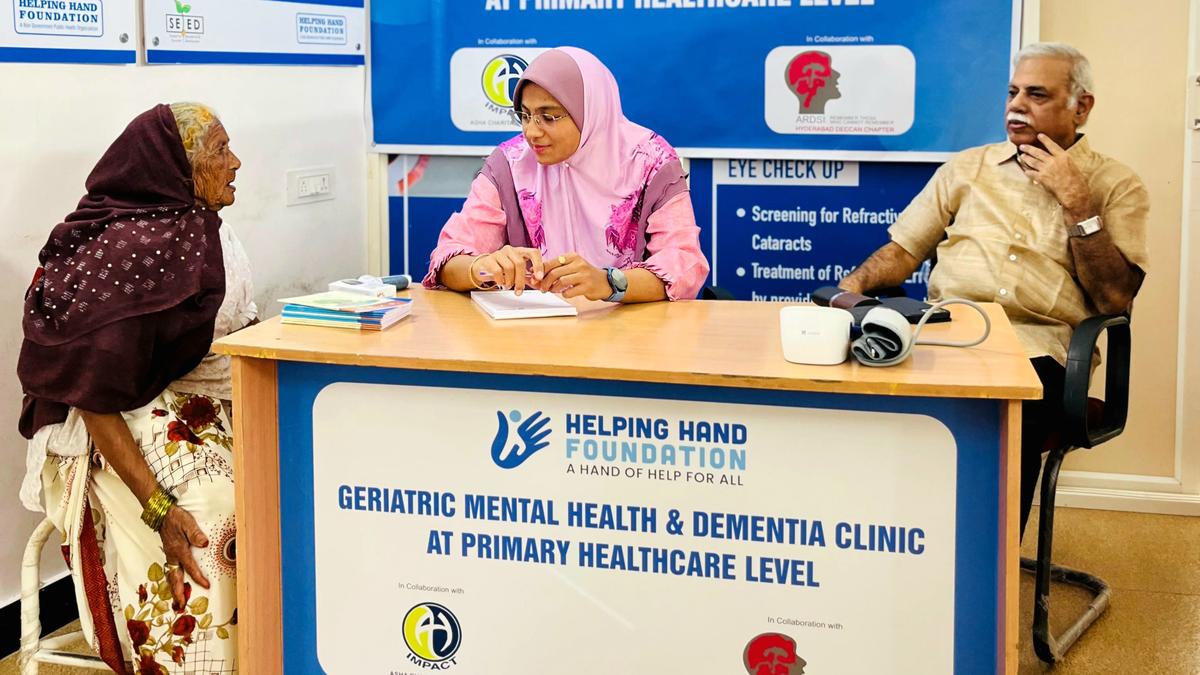
Healthcare NGOs collaborate to launch dementia clinics in Hyderabad slums
The Hindu
A 2022 study by All India Institute of Medical Sciences (AIIMS)-Delhi estimates that 8.8 million people in India live with dementia.
In an effort to bridge the gap in mental health services, three healthcare NGOs have come together to establish a series of community-level mental health and dementia clinics in the urban and peri-urban slums of Hyderabad. These clinics aim to address the mental health needs of economically disadvantaged populations, where awareness of conditions like dementia remains low.
The NGOs involved are Helping Hand Foundation (HHF), Asha Charitable Trust, and the Alzheimer’s and Related Disorders Society of India (ARDSI) Hyderabad Deccan Chapter.
Dementia, a progressive neurodegenerative disease, impairs memory, cognition, and behaviour, often complicating daily functioning. A 2022 study by All India Institute of Medical Sciences (AIIMS)-Delhi estimates that 8.8 million people in India live with dementia, with a 2013 survey conducted by Nizam’s Institute of Medical Sciences (NIMS) indicating that Hyderabad alone had over 40,000 cases, a number believed to have since doubled.
“For the first time, screenings for dementia and other mental health conditions are being conducted at the primary care level in Primary Health Centres (PHCs) operated by HHF-SEED in the city’s urban and peri-urban slums. These clinics, located at Rajendranagar and Pahadi Shareef, cater to communities with high rates of illiteracy and poverty, where issues related to brain health often go unrecognised, said Mujtaba Hasan Askari of HHF.
Initially, the clinic will focus on screening and support for geriatric patients (aged 55 and above) and individuals with chronic conditions such as stroke, diabetes, and hypertension.
A preliminary neuropsychological assessment, the Hindi Mini-Mental State Examination (HMSE), will evaluate patients’ cognitive function on a 31-point scale, with a score of 23 or below prompting further evaluation using the Addenbrooke’s Cognitive Examination-III (ACE-III). This tool is adapted to accommodate patients’ educational backgrounds and language preferences, validated for Indian patients by experts at NIMHANS, added Mr.Askari.
The management plan for those diagnosed with dementia follows a three-tier approach: medication for symptom control, functional rehabilitation and cognitive stimulation therapy for the patient, and a caregiver support programme to aid families in managing dementia care at the community level.

Udhayanidhi Stalin urges cadres to launch campaign for securing 200 seats in 2026 Assembly elections
Udhayanidhi Stalin urges DMK members to gear up for 2026 Tamil Nadu elections, aiming for 200 seats.










